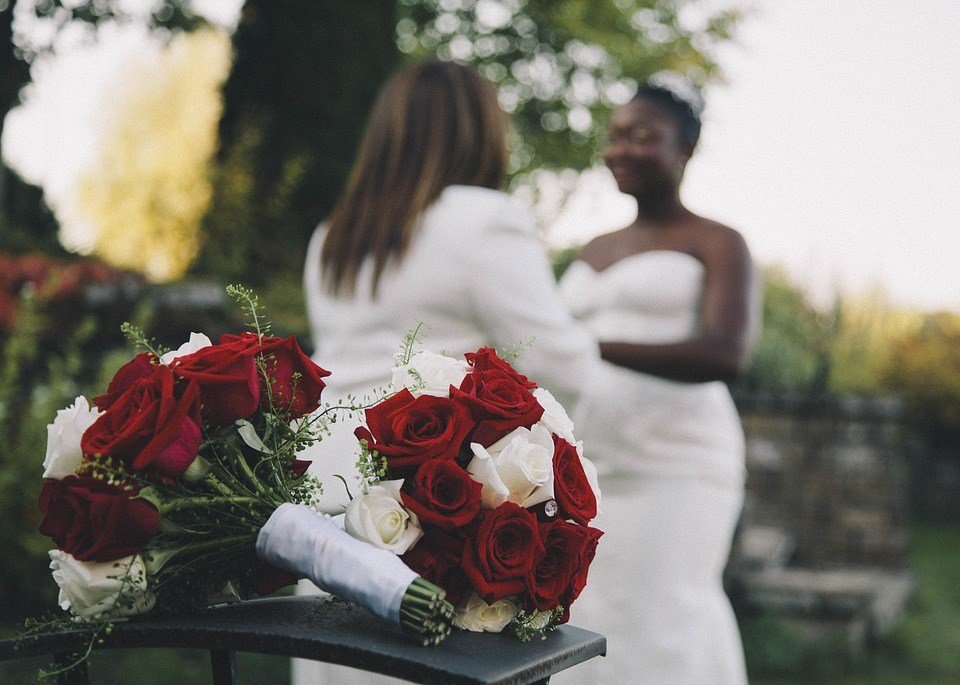Business
SCOTUS ruling expands impact of same-sex marriage in the U.S.
The SCOTUS ruled that same-sex couples that decided to have children by birth have the right to be named as the parents on their child’s birth certificate.

One of the basic arguments against same-sex marriage was that, in biological terms, marriage can only be between members of the opposite sex. That conforms to the view that the purpose of marriage is having children and creating the family environment to raise them.
However, the Supreme Court of the United States (SCOTUS) had ruled on 26 June 2015 that marriage was a constitutional right of all U.S. citizens regardless of their gender and sexual preferences. Reaffirming its decision, it ordered all states to recognize same-sex marriages as valid and gave the same rights to same-sex and heterosexual couples. The full legal ramifications of this ruling are still unfolding.
Recently, the Supreme Court again gave a decision that’s pitting the pro- and anti-same sex marriage camps against each other. The New York Times reported that the SCOTUS now prescribes that same-sex couples who decide to have children by birth may now be named as parents on the child’s birth certificate.
The case stems from a lawsuit filed by two lesbian couples in Arkansas, who wanted to be the registered parents on their children’s birth certificates. Authorities registered the biological mothers, who conceived through sperm donors, as the mothers in the certificate. However, their partners were not registered as the fathers.
Among their arguments before the court, the lesbian couples pointed out that Arkansas law only allows parents named on the child’s birth certificate to access the child’s educational information from public schools.

The SCOTUS ruling in Arkansas is a milestone for gay couples with children. (Source)
The Arkansas Supreme Court ruled against the couples, saying that paternity for children is based on “biological truths.” In other words, the only fathers that can be recognized by law were the anonymous biological fathers who donated their sperm. However, the SCOTUS did not agree. Ruling 6 against 3 in favor of the couples, the high court said that birth certificates are part of the rights, benefits, and responsibilities that go with marriage.
This is only the latest in very interesting legal consequences of same-sex marriage in the U.S. Ever since the 2015 Supreme Court ruling, a whole range of cases, from Christian bakers refusing to make cakes for gay couples, to tangled, sometimes confusing local laws on the use of male and female restrooms, have come up.
Christian bakers in Colorado and Oregon, for example, faced lawsuits for refusing to make wedding cakes for same-sex couples. They based their refusal on religious grounds, saying they believed gay marriages were sinful, and that as Christians, they have the right to refuse participation in such events.
Gay couples and civil rights lawyers, however, said that these bakers’ religious rights would not be violated. They explained that as long as they operated a public business, the bakers are obliged to serve all members of the public, gay or straight. Furthermore, in serving gay couples, the bakers were not being asked to change their beliefs or express support for same-sex marriage.
It all seems like a lot of trouble for what looks like fine points of legal and social transactions. Still, the impact on couples, their children, as well as small businesses, are very real. For example, the Oregon bakery was being run by a Christian family. Outrage from their refusal to serve the gay couple resulted in the loss of income and harassment, to the point where they had to close the business. Life Site News hat they were sued by the state and later lost. A judge ordered them to pay a fine of $135,000.
Small businesses are impacted in other ways. When gay employees married, there’s extra paperwork in terms of revising employment records, benefits, deductible taxes, and so on. Still, homosexual couples logically point out that the extra paperwork is something done for heterosexual couples all the time, without any complaints.
With the Trump administration being perceived as having a dim view on gay rights, some are more emboldened to fight same-sex marriage in the U.S. More legal battles may happen if such plans gain traction.

-

 Markets2 weeks ago
Markets2 weeks agoGold’s Historic Surge and Sudden Crash Signal Volatility, Not Defeat
-

 Cannabis3 days ago
Cannabis3 days agoWhen a Cutting Becomes a Cannabis Plant: Court Clarifies Germany’s Three-Plant Rule
-

 Africa1 week ago
Africa1 week agoIvory Coast Development Plan 2026–2030: Investment, Growth, and Strategic Reforms
-

 Crypto6 days ago
Crypto6 days agoBitcoin Rebounds Above $70K as Crypto Markets Show Fragile Signs of Recovery


























You must be logged in to post a comment Login